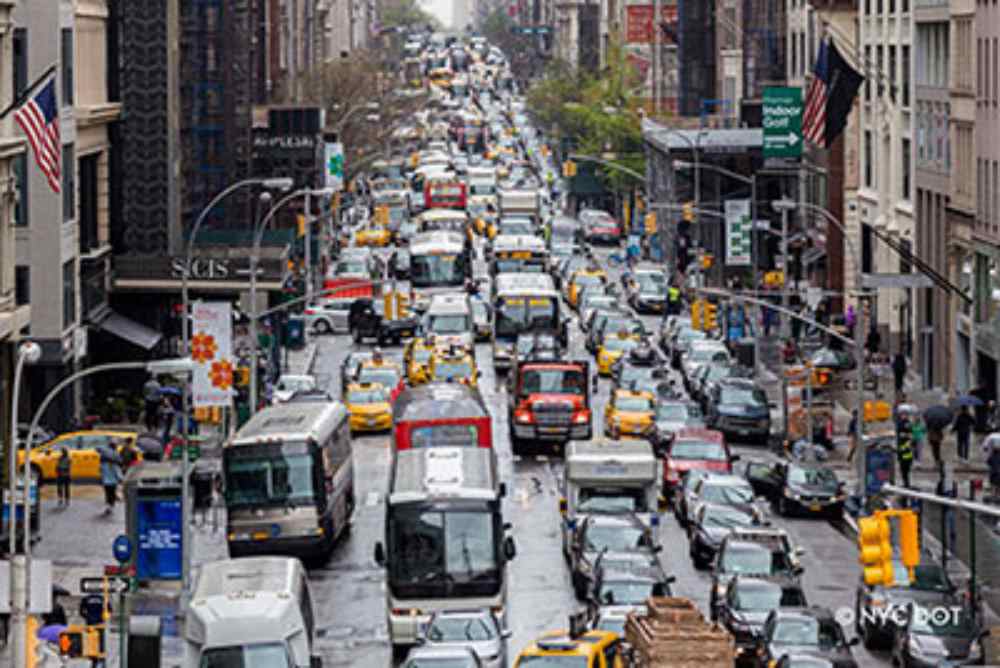The state of New Jersey has intensified its opposition to New York City’s congestion pricing plan by formally requesting a judge to issue an injunction to block its implementation, which is slated to commence this coming Sunday. This legal maneuver marks a significant escalation in the ongoing dispute over the controversial tolling system, which aims to charge vehicles entering Manhattan below 60th Street. New Jersey’s arguments center on the assertion that the congestion pricing program will disproportionately burden its residents and businesses, potentially leading to economic hardships and increased traffic congestion in areas outside of Manhattan. The state is seeking an immediate halt to the plan before it goes into effect, claiming that its implementation will cause irreparable damage.
New Jersey’s legal team has presented a detailed case outlining the potential negative consequences of the congestion pricing scheme. The arguments include concerns that the additional tolls will place an undue financial strain on commuters who rely on their vehicles to reach their jobs in Manhattan, and that those commuters will potentially seek alternate routes to avoid the tolls, creating increased traffic in neighboring New Jersey communities. Furthermore, they contend that the environmental impacts were not adequately assessed, with the possibility of increased pollution in certain residential zones as drivers seek to circumvent the pricing zone. The state’s formal complaint includes detailed studies and expert testimony attempting to demonstrate the economic and environmental harms.
The Metropolitan Transportation Authority (MTA), the agency responsible for implementing the congestion pricing program, has defended the scheme as a crucial step in addressing New York City’s notorious traffic congestion and funding much needed upgrades to the city’s public transportation infrastructure. The MTA and proponents of the plan have argued that the tolls will incentivize more people to utilize public transit or other forms of transportation, reducing the number of vehicles on the road, easing congestion and improving air quality. The agency has also emphasized that revenue generated through the tolls will be dedicated to crucial upgrades and maintenance of the city’s public transit network, benefiting commuters and the city’s economic growth as a whole.
The legal challenge comes after years of debate, studies, and discussions over the congestion pricing program. The program was originally conceived in the early 2000s as a way to alleviate traffic and generate revenue for public transportation, but was met with strong opposition from various quarters, leading to several delays in its implementation. Now, with the plan set to move forward, New Jersey’s legal intervention represents a last-ditch effort to stop it before it goes live. The judge’s decision will have far reaching consequences, impacting commuters, the environment, and the economies of both New York and New Jersey.
The timing of New Jersey’s legal request further underscores the urgency of the situation. With the implementation date just days away, the state is seeking an immediate intervention from the judiciary. If the judge grants the injunction, it would halt the congestion pricing scheme before it can even begin, forcing further delays and likely bringing the dispute back to the negotiation table. If the judge rules against New Jersey, the congestion pricing will move forward as planned, and commuters will face the new toll, with the hope that it will ease traffic congestion and provide crucial financial support for the city’s public transport. This current situation is creating a tense atmosphere as the Sunday implementation draws closer. Many are waiting to see how this legal challenge plays out. The final decision will have long lasting impacts for the region.
This legal challenge is not without precedent. There have been several challenges to congestion pricing plans in the past. In London, the congestion charge has been operating for several years, and whilst it has faced criticism, it has generally been seen as a success in reducing traffic. The final ruling by the judge will be closely watched, as it will have significant repercussions not only for the New York metropolitan area, but may also provide a blueprint for other cities considering similar congestion pricing schemes in the future. The long term impacts of this system for public transportation, the economy and the environment is still not known, however this legal challenge is a reminder of the complexity surrounding such large scale projects and their implementation.



